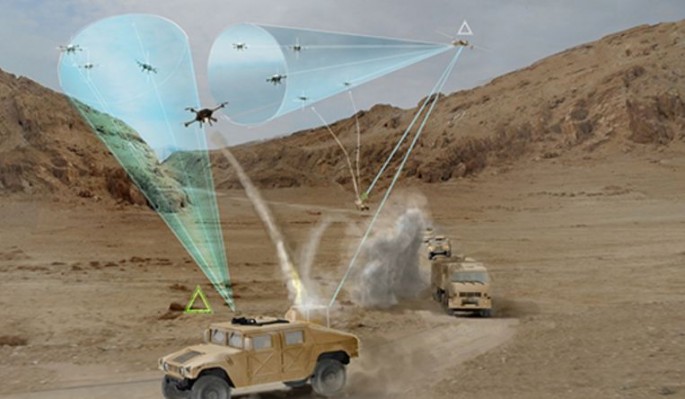The U.S. Army general heading the little known but strategically important National Counterterrorism Center (NCTC) based in Washington D.C. warns of the looming danger from swarms of cheap and easily available aerial drones that might one day overwhelm existing countermeasures.
"It is conceivable that someday soon we will see someone's otherwise capable military security force penetrated, defeated or even overrun by such technologies," said NCTC Director Lt. Gen. Michael Nagata.
The effectiveness of off-the-shelf drones that can also be bought online is being proven in Iraq where the terrorist group ISIL is using these drones for reconnaissance, and as flying bombs that explode on striking their targets.
"What could you do with a swarm of weaponized unmanned aerial systems?" asked Gen. Nagata.
"We need to remember that aerial vehicles are not the only rapidly growing capability when it comes to robotics. Ask yourself what could a robot the size of a penny that can cut through computer cables do to a command control room?"
The U.S. response to the threat of commercially available unmanned aerial systems has been broad and disparate.
In Nov. 2016, the U.S. Defense Advanced Research Projects Agency (DARPA) solicited the assistance of private firms and the academe to help it push forward with the tougher than expected challenge of defeating aerial drone attacks on military vehicles on the move.
DARPA wants to first build an agile and mobile aerial drone-defense system that can defeat attacks by self-guided, small unmanned aerial vehicles (UAVs) against troop and supply convoys.
It wants a system that can defend against radio-controlled and GPS-guided weaponized UAVs, and also against future UAVs that navigate by visual means in large groups. Of particular interest to DARPA is the ability to counter relatively small fixed-wing or helicopter UAVs weighing less than 200 pounds.
NCTC is the primary organization in the U.S. government for integrating and analyzing all intelligence pertaining to terrorism possessed or acquired by the U.S. government (except purely domestic terrorism).
It serves as the central and shared knowledge bank on terrorism information. It also provides all-source intelligence support to government-wide counterterrorism activities; establishes the information technology systems and architectures within the NCTC and between the NCTC and other agencies that enable access to, as well as integration, dissemination, and use of, terrorism information.
NCTC also serves as the primary organization for strategic operational planning for counterterrorism.



























